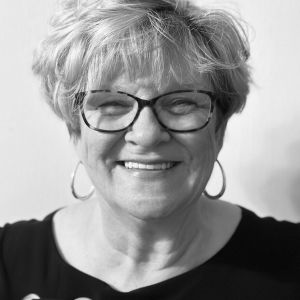








Tikvah Lake Recovery
Verified Center
This provider's information has been quality-checked by Recovery.com's Research Team for accuracy and completeness, including center verification through appropriate third-party organizations.
Treatment Focus
This center treats substance use disorders and co-occurring mental health conditions. Your treatment plan addresses each condition at once with personalized, compassionate care for comprehensive healing.
Primary Level of Care
Offering intensive care with 24/7 monitoring, residential treatment is typically 30 days and can cover multiple levels of care. Length can range from 14 to 90 days typically.
Treatment Focus
This center treats substance use disorders and co-occurring mental health conditions. Your treatment plan addresses each condition at once with personalized, compassionate care for comprehensive healing.
Primary Level of Care
Offering intensive care with 24/7 monitoring, residential treatment is typically 30 days and can cover multiple levels of care. Length can range from 14 to 90 days typically.
Insurance Accepted
This center accepts insurance, exact cost can vary depending on your plan and deductible.
Tikvah Lake Recovery
Tikvah Lake Recovery
About Tikvah Lake Recovery
Tikvah Lake Recovery provides a private, six-bed luxury retreat for executives and individuals seeking addiction and co-occurring mental health treatment. Their personalized approach ensures each client receives tailored care, whether in the 30- to 90-day residential program or the 10-day accelerated executive program. With daily support from the clinical director and a dedicated concierge team, clients experience world-class treatment, discretion, and comfort in a serene, 15,000-square-foot lakeside estate.
Navigate Recovery with a Structured 3-Phase Approach
Tikvah Lake’s 3-phase approach begins with an orientation week to develop personalized treatment plans, address co-occurring mental health disorders, and introduce healthy living practices alongside Step One of Alcoholics Anonymous/Narcotics Anonymous (AA/NA). In the second phase, clients engage in therapy, develop coping skills, and deepen their understanding of addiction as a manageable disease while advancing to Step Two. The final phase focuses on life after treatment, including crafting individualized aftercare plans and starting Step Three to support a smooth transition to long-term recovery.
Maximize Healing with Individual Therapy & Aftercare
Tikvah Lake’s residential program emphasizes individual therapy, offering 8-10 hours of one-on-one sessions per week, including multiple daily cognitive behavioral therapy (CBT) sessions to support behavioral and lifestyle changes. Clients benefit from a blend of holistic therapies, including yoga, energy work, meditation, and balanced nutrition. Comprehensive care goes beyond primary treatment through the Future Care program, which provides weekly remote therapy with their clinicians to help clients sustain recovery. The first 30 days of Future Care are included, with the option to continue ongoing support.
Unwind in a Sunny, Spacious Location
Tikvah Lake’s grounds boast a pool, spa, dock, and boat on a 200-acre lake. Their elegant mansion has a library, lounge areas, private therapy spaces, a recreational room, gym, and office space for clients. Clients stay in large private bedrooms with en suites, and a separate villa accommodation is available. A gourmet chef serves all meals around the dining table to encourage a sense of family. Snacks and fruit are available all day, along with tea and coffee. Clients also benefit from proximity to a state park with miles of hiking trails. Phones and laptops are permitted to help clients stay connected to work and family.

Highlights from the Center
Highlights
These highlights are provided by and paid for by the center.
Perfect for Professionals
Private Rooms Only
Tech Friendly
Executive Treatment
Center Overview
Treatment Focus
This center treats substance use disorders and co-occurring mental health conditions. Your treatment plan addresses each condition at once with personalized, compassionate care for comprehensive healing.
CARF Accredited
CARF stands for the Commission on Accreditation of Rehabilitation Facilities. It's an independent, non-profit organization that provides accreditation services for a variety of healthcare services. To be accredited means that the program meets their standards for quality, effectiveness, and person-centered care.
Recently helped 3 people via Recovery.com

Tikvah Lake Recovery
Recently helped 3 people via Recovery.com
Insurance Accepted
Cash Pay Rates
Estimated Cash Pay Rate
Center pricing can vary based on program and length of stay. Contact the center for more information. Recovery.com strives for price transparency so you can make an informed decision.




More Tikvah Lake Centers To Consider
Recovery.com Verified Listing
Recovery.com verified that the name, location, contact information and license to operate for this treatment provider are valid and up-to-date.

CARF Accredited

Licensed by Florida DCF
Recovery.com is an independent, third-party mental health resource. Verification does not imply endorsement and does not guarantee the quality of treatment services.
Meet Your Care Team

Dr. Jose Toledo, MD
Medical Director

Katherine Fannin Wesley
Clinical Director
CAC, ICADC, IMAC

Lesley Hyatt
Executive Concierge

Byron Wickham
Therapist, PTSD and Trauma
MA, Mental Health Therapy

Tallulah Pharaoh
Registered Nurse

Dr. Melody Clancy
Acupuncturist, Health and Wellness Coach
DOM, AP

Byron Wickham
Therapist

Tami Boone
Personal Trainer

Gio Cocilova
Chef

Dr. David Nesenoff
CEO
DD, MA
Your Care Options
Specializations
Pet Friendly
For greater comfort and healing, pet-friendly treatment centers welcome dogs and animal companions to stay with their owners while they attend treatment.
Executives
Executive treatment programs typically directly support the needs of people who manage businesses and may provide flexible schedules and office space to allow work during treatment.
Professionals
Busy, high-ranking professionals get the personalized treatment they need with greater accommodations for work, privacy, and outside communication.
Who We Treat
Older Adults
Addiction and mental health treatment caters to adults 55+ and the age-specific challenges that can come with recovery, wellness, and overall happiness.
Executives
Executive treatment programs typically directly support the needs of people who manage businesses and may provide flexible schedules and office space to allow work during treatment.
Men and Women
Men and women attend treatment for addiction in a co-ed setting, going to therapy groups together to share experiences, struggles, and successes.
Midlife Adults
For adults ages 40+, treatment shifts to focus on the unique challenges, blocks, and risk factors of their age group, and unites peers in a similar community.
Professionals
Busy, high-ranking professionals get the personalized treatment they need with greater accommodations for work, privacy, and outside communication.
Treatment Services
Detox (off-site)
This is often the first step of addiction treatment. For many people, it's dangerous to detox without proper medical support.
Residential
In a residential rehab program, patients live onsite, with access to daily treatment and 24-hour care. An average stay is 30-90 days.
Approaches
Spiritual Emphasis
Spirituality connects patients to a higher power and helps strengthen their recovery, hope, and compliance with other treatment modalities.
Evidence-Based
A combination of scientifically rooted therapies and treatments make up evidence-based care, defined by their measured and proven results.
Holistic
A non-medicinal, wellness-focused approach that aims to align the mind, body, and spirit for deep and lasting healing.
Individual Treatment
Individual care meets the needs of each patient, using personalized treatment to provide them the most relevant care and greatest chance of success.
One-to-One
Patients work with their treatment team members on a 1-on-1 basis, keeping their journey and treatment fully private and personalized.
Personalized Treatment
The specific needs, histories, and conditions of individual patients receive personalized, highly relevant care throughout their recovery journey.
Wellness
Wellness philosophies focus on the physical, mental, and spiritual wellness of each patient, helping them restore purpose with natural remedies.
Therapies
1-on-1 Counseling
Patient and therapist meet 1-on-1 to work through difficult emotions and behavioral challenges in a personal, private setting.
Meditation & Mindfulness
A practiced state of mind that brings patients to the present. It allows them to become fully aware of themselves, their feelings, and the present moment.
Trauma-Specific Therapy
This form of talk therapy addresses any childhood trauma at the root of a patient's current diagnosis.
Adventure Therapy
This experiential approach uses the physical and emotional challenges of outdoor activities as tools for personal growth.
Animal Therapy
Animals can inspire trust and self-worth. In this experiential therapy, guided interactions are used to improve social skills and emotion regulation.
Aromatherapy
Inhaling or topically applying essential oils can help relieve stress, soothe pains, and relieve emotional distress.
Art Therapy
Visual art invites patients to examine the emotions within their work, focusing on the process of creativity and its gentle therapeutic power.
Canine Therapy
Friendly dogs provide a pleasant therapeutic experience, helping patients who've experienced trauma or separations build social and communication skills.
Conditions We Treat
Personality Disorders
Personality disorders destabilize the way a person thinks, feels, and behaves. If untreated, they can undermine relationships and lead to severe distress.
Anxiety
Anxiety is a common mental health condition that can include excessive worry, panic attacks, physical tension, and increased blood pressure.
Bipolar
This mental health condition is characterized by extreme mood swings between depression, mania, and remission.
Post Traumatic Stress Disorder
PTSD is a long-term mental health issue caused by a disturbing event or events. Symptoms include anxiety, dissociation, flashbacks, and intrusive thoughts.
Substances We Treat
Alcohol
Using alcohol as a coping mechanism, or drinking excessively throughout the week, signals an alcohol use disorder.
Co-Occurring Disorders
A person with multiple mental health diagnoses, such as addiction and depression, has co-occurring disorders also called dual diagnosis.
Drug Addiction
Drug addiction is the excessive and repetitive use of substances, despite harmful consequences to a person's life, health, and relationships.
Heroin
Heroin is a highly addictive and illegal opioid. It can cause insomnia, collapsed veins, heart issues, and additional mental health issues.
Methamphetamine
Methamphetamine, or meth, increases energy, agitation, and paranoia. Long-term use can result in severe physical and mental health issues.
Opioids
Opioids produce pain-relief and euphoria, which can lead to addiction. This class of drugs includes prescribed medication and the illegal drug heroin.
Prescription Drugs
It's possible to abuse any drug, even prescribed ones. If you crave a medication, or regularly take it more than directed, you may have an addiction.
Synthetic Drugs
Synthetic drugs are made in a lab, unlike plant-based drugs like mushrooms. Most synthetic drugs are either stimulants or synthetic cannabinoids.
Languages
Aftercare
Care Designed for Your Needs
Personal Amenities
Amenities
Special Considerations
Center Pets
Addiction and mental health facilities with pets allow patients to interact with friendly dogs, cats, horses, and in some cases, even dolphins.
Clients can bring their own pet(s)
For greater comfort and healing, pet-friendly treatment centers welcome dogs and animal companions to stay with their owners while they attend treatment.
Couples program
Using gentle clinical care, therapists guide patients and their partner through guided sessions to address issues and work towards lasting solutions.
Pet Friendly
For greater comfort and healing, pet-friendly treatment centers welcome dogs and animal companions to stay with their owners while they attend treatment.
Executive Program
Addiction and mental health treatment for executives typically involves high discretion, greater technology access, and more private, 1-on-1 care.
Flexible technology policies
Centers with flexible technology policies allow professionals to stay in touch with work and give patients a greater sense of connection and normalcy.
Activities
Off-Site Activities
Off-Site Amenities
Recently helped 3 people via Recovery.com
Learn More About the Center
10-Day Luxury Executive Drug Rehab
Learn about Tikvah Lake’s condensed program tailored for executives.
10 Tips for Returning to Work After Rehab
Re-enter the workplace with confidence and set boundaries for lasting recovery.
Work Addiction Statistics, Facts, and Prevalence
Explore the surprising numbers and hidden realities behind work addiction and why it’s quite common.
Reframing Workaholism: The Misunderstood Addiction
Learn how workaholism differs from dedication, why it’s often overlooked, and steps to achieve a healthier balance.





